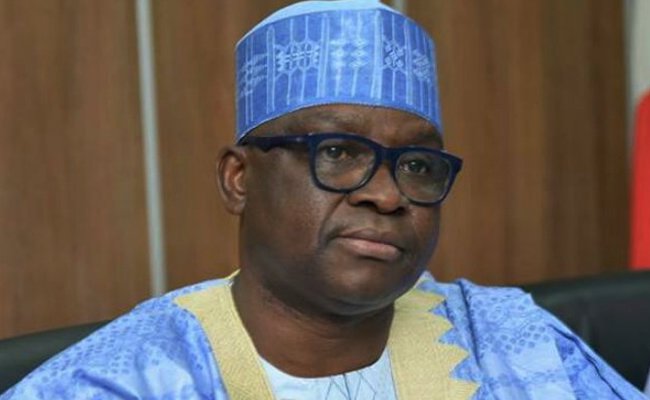ACNNtv
Updated, May 17, 2021
SECTION 162(1) of the 1999 Constitution created the Federation Account, into which shall mandatorily be paid, all revenues collected by the Government of the Federation, excepting proceeds of personal income tax from a few categories of persons. The Constitution also defines “revenue” as any income or return accruing to or derived by the Government of the Federation from any source.
The constitution does not make provision for any other special account to be maintained by the Federation of Nigeria, into which revenues shall be paid. The document specifically mentions federal government, state governments and local government councils as the only recipients or beneficiaries of the federation account.
The Constitution also prescribes that the federation account shall be distributed only on the basis of a Revenue Allocation Formula to be prescribed by the National Assembly after it would have been recommended by the Revenue Mobilisation, Allocation and Fiscal Commission (RMAFC) and submitted to the President for onward transmission to the National Assembly. It is supposed to be in operation for at least five years before any review. Since 1999 however, it has been impossible for the National Assembly to pass any Revenue Allocation Formula Bill into law.
In June 2008, the then Chairman of RMAFC, Late Hamman Tukur, blamed the federal government for the absence of an authentic revenue allocation formula after more than eight years of democracy.
He said, “It is really shameful that we are still operating an illegal revenue formula, which is outdated and given out by a mere circular by a former Finance Minister. How could a revenue formula be based on a circular in a democratic system?”
Thirteen years after that lamentation, the situation remains the same. RMAFC had on June of that year submitted yet another reviewed formula to President Umar Yar’Adua for onward presentation to the National Assembly. Between August 2001 and 2014, four attempts resulted in futility. The fifth effort is currently in the works with no certainty that anything tangible will result from it. The commission had been forced to withdraw its 2001 report following Supreme Court Judgment in the Resource Control Suit of April 5, 2002, which declared amongst others, as illegal, allocations to “Special Funds” directly from the Federation Account. It submitted a reviewed copy on December 19, 2002 to President Olusegun Obasanjo for tabling before the National Assembly. However, Obasanjo returned the document to the commission one year after on December 17 December, 2003 asking for reconsideration of the Revised Revenue Allocation Formula and the relevant draft Bill saying the responsibilities identified in the assignment of weights to beneficiaries of the Federation Account were not exhaustive.
The commission then prepared an addendum as an integral part of its December 2002 Main Report where it made some changes in the Vertical Revenue Allocation Formula.
The 1992 formula allocated 48.5 per cent to FG, 24 per cent to states and 20 per cent to local governments.
The 7.5 per cent allocated to Special Fund was nullified by the Supreme Court because the Constitution does not envisage any special funds, as only three tiers of government are recognised as beneficiaries.
The 2001 proposal by RMAFC had suggested: FG 41.3 per cent, states 31 per cent, LGCs 16 per cent and Special Funds 11.7 per cent (i.e. FCT 1.2 per cent, Ecology 1 per cent, Natural Resources 1 per cent, Agriculture and Solid Mineral Development 1.5 per cent and Basic Education 7 per cent).
It was therefore, withdrawn. To avoid a vacuum, the Federal Government issued an Executive Order in May 2002 to distribute federation account on the basis of 56 per cent to FG; 24 per cent to states and 20 per cent to LGCs. This was reviewed in July of the same year when FG got 54.68 per cent, states 24.72 per cent and LGCs 20.60 per cent. Finally, in March 2004, Minister of Finance, Dr Okonjo Iweala issued a memo modifying the second Executive Order and increased state allocation to 26.72 per cent by reducing FG to 52.68 per cent. All subsequent attempts by RMAFC to get the National Assembly to legislate an acceptable revenue allocation formula for the Federation have failed. In 2014, the commission again reviewed the formula but it was rejected by President Goodluck Jonathan.
In an interview, Elias Mbam, who succeeded Tukur, said “those that were supposed to take the next step will be in the position to give you reason” (why they failed to do so). In 2019, Mbam constituted yet another sub-committee to work on a review which, according to him. would ensure a timely submission to the President for onward transmission to the National Assembly. He disclosed that the commission was starting three and half years to 2023 so as to conclude the assignment timeously for it to be passed before the expiration of 9th National Assembly.
“Now, we still have three and a half years. If we cannot finish this early enough for them to consider within the three years, then something must have been difficult or unusual.”
Nearly two years after, not much has been heard about the process even as lawmakers are set to embark on regional public hearing on review of the constitution.
In federal countries, a rigidly defined revenue allocation formula has the objectives of engendering national unity; economic growth; balanced development; self-sufficiency; and high standard of living for the citizens.
The snag here, however is how best to resolve these complex revenue allocation problems that will achieve the aforementioned objectives. To achieve these, the Constitution also clearly defines roles for each of the tiers of government segregated into exclusive and concurrent and residual legislative lists.
In November 2016, Chairman of Forum of Finance Commissioners, Mr John Inegbedion, revealed that the politics of a new revenue allocation formula was very intense and has lots of political undertone. He accused Federal Government of not wanting a new formula because of the fear of losing anything from its present 52.68 per cent share of the federation account.
“Obviously, states and local governments want a new formula because the current one is archaic but you know that Federal Government has not been enthusiastic about it”, he said while lamenting the current situation whereby revenue generating agencies, like the Nigeria Customs Service (NCS), Federal Inland Revenue Service (FIRS) and the Department of Petroleum Resources (DPR) now share from federation account whereas they were part of the load being carried by Federal Government which entitled it to a larger chunk of national revenue.
Both DPR and FIRS receive four per cent as their cost of collection, while Customs Service takes seven per cent. Another one percent of federation account is devoted to Police Special Fund. Funds are also regularly taken from the account to fund sundry issues including military operations.
At a meeting with a delegation of RMAFC, Akwa Ibom State Governor, Udom Emmanuel, declared that a review of revenue formula was long overdue.
According to him, “the review of revenue formula to reflect the structure of the country based on equity, fairness and justice is long overdue. The Federal Government should look into it.” During an oversight visit by members of the Senate Committee on National Planning and Economic Affairs, its Chair, Musa Kwankwanso, promised to pursue an amendment of the Constitution to ensure that RMAFC would no longer need to submit its recommendations to the President for onward transmission to the assembly.
Also speaking on the floor of the Senate, Adamu Aliero said the senate was aware that “there is no extant Act of the National Assembly accepting the present revenue allocation formula which means the formula in use now is unconstitutional” and that “unless the present formula is reviewed in favour of the states and local governments, real growth and development will continue to elude this great country.
Source: Nigerian Tribune.







